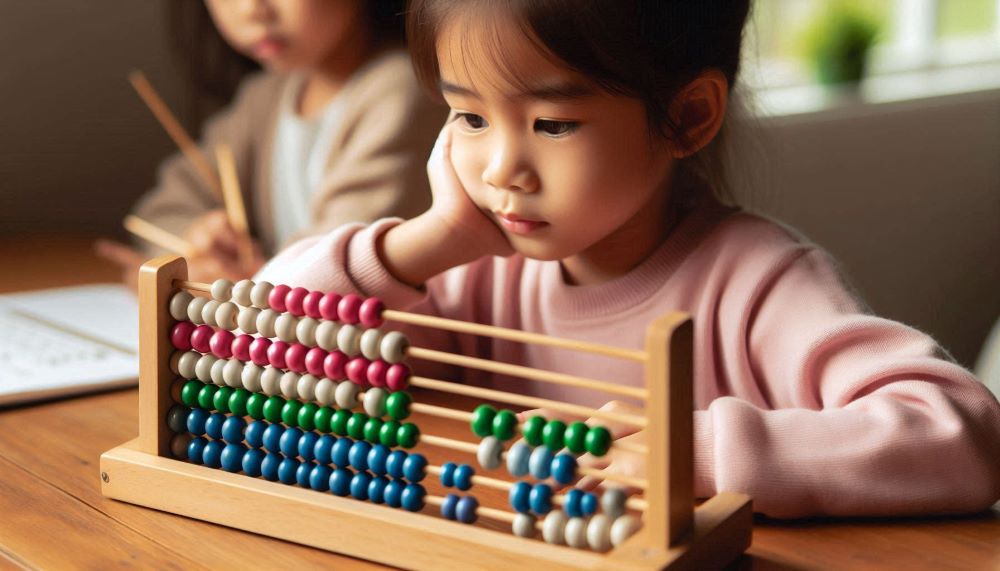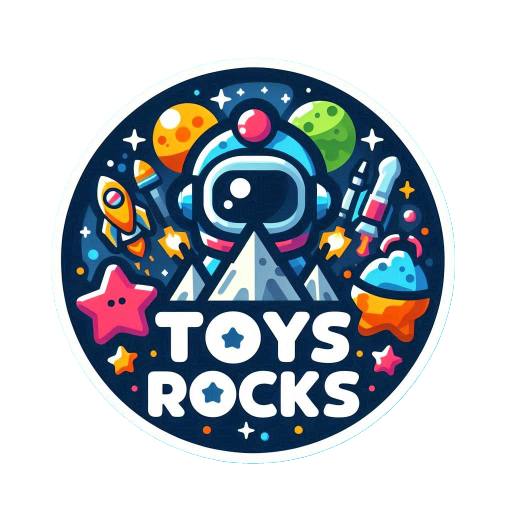Overview: Wooden abacuses serve as educational toys that assist children in developing essential counting and mathematical skills. These classic tools offer a tactile and hands-on approach to exploring numbers and fundamental arithmetic concepts, transforming learning into an engaging and interactive experience.

Description: A wooden abacus consists of a frame with rows of beads that slide back and forth. Each row typically represents a different place value, such as ones, tens, hundreds, and so on. The beads are often brightly colored, making the abacus visually appealing and engaging for children. The frame is usually made from high-quality wood, ensuring durability and a pleasant tactile experience. The simplicity of the design allows children to focus on the mathematical concepts they are learning.
How to Play: Playing with a wooden abacus involves moving the beads to count and perform simple calculations. Children can slide the beads across the rods to represent different numbers, making it easy to visualize addition, subtraction, multiplication, and division. This hands-on approach helps reinforce mathematical concepts and improves number sense.
For example, to add two numbers, children can move the corresponding number of beads on one row and then add the beads from another row, counting the total. This visual and tactile method makes abstract concepts more concrete, aiding in comprehension and retention.
Using an abacus also helps develop fine motor skills and hand-eye coordination as children manipulate the beads. It encourages logical thinking and problem-solving as they work through different calculations and explore numerical relationships.
Examples:
- Classic Abacuses: These traditional abacuses feature a simple wooden frame with rows of beads in basic colors. They are perfect for teaching fundamental counting and arithmetic skills.
- Colorful Bead Frames: These abacuses come with brightly colored beads and often include additional features like numbers or symbols on the frame. They add an extra layer of engagement and can be used to teach more advanced mathematical concepts.
Wooden abacuses are more than just toys; they are valuable educational tools that support cognitive development and mathematical learning. They provide a safe and engaging way for children to explore numbers and arithmetic, making math both accessible and enjoyable. The open-ended nature of play with an abacus means that there are no limits to the calculations and numerical explorations children can undertake, making them a cherished addition to any learning environment.
In conclusion, wooden abacuses offer a perfect blend of educational value and interactive play. Their simple yet effective design captivates children’s imaginations, while the endless possibilities for counting and calculations help develop important math skills. Whether it’s a classic abacus or a colorful bead frame, wooden abacuses provide countless hours of fun and learning.
